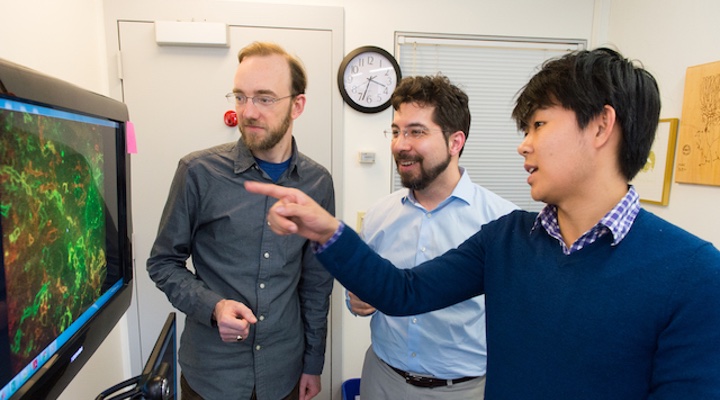The Open Philanthropy Project awarded an unrestricted gift of $2,970,000 to support materials, equipment use, and salaries for as many as nine post-doctoral researchers, staff scientists, and new graduate students over two years for the Synthetic Neurobiology Group at the MIT Media Lab’s new Center for Extreme Bionics. MIT’s Synthetic Neurobiology Group is led by Associate Professor Edward Boyden, and housed by both the MIT Media Lab’s new Center for Extreme Bionics and MIT’s McGovern Institute for Brain Research. Among other things, the group is working on developing new methods and techniques for mapping the brain.
Although we are still in the early stages of exploring science philanthropy, two areas we are interested in investigating further are fundamental basic science and improving tools and techniques within biomedical sciences. We see this gift as an opportunity to explore both of these spaces. We decided to investigate Professor Boyden’s lab specifically on the basis of a strong referral from our trusted scientific advisor, Dr. Dario Amodei.
We decided to make a gift to Professor Boyden’s lab to attempt to continue progress on his brain-mapping techniques, based mainly on our impressions that: if the project succeeds, it will have a major impact on neuroscience; success is a realistic, if highly uncertain, possibility; Professor Boyden is an outstanding scientist who has outstanding students in his group; Professor Boyden’s lab has combined economic and scientific considerations to analyze the comparative strengths and weaknesses of different approaches to mapping the brain in a way that we find both compelling and rare; and the proposal is an ambitious and unconventional project which appears to be unlikely to be funded through other sources.
Our largest concern about this gift is that our initial decision to evaluate the Synthetic Neurobiology Group’s proposal relied strongly on Dario’s recommendation, rather than a systematic process (such as a request for proposals or a systematic evaluation of possible areas of basic science to fund). Despite a thorough evaluation of this particular project and conversations with several scientists in the field, we still have a somewhat limited sense of how this project compares with other projects in neuroscience, or how neuroscience compares with other fields of basic science we could support.


